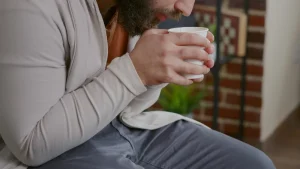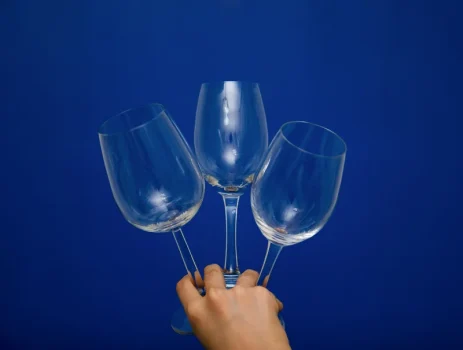
The environment in which you sleep can significantly impact the likelihood and severity of night sweats. Whiskey may provide temporary relief from specific cold symptoms, but it’s generally not advisable to consume alcohol when sick. Alcohol can suppress the immune system and dehydrate the body, which is counterproductive when trying to recover from a cold. This chemical reaction in the body does not mean that you are drunk or drank too much. The response means that your body does not have the chemical enzymes to break down alcohol effectively.

Alcohol Withdrawal Hot Flashes
- If you are experiencing severe alcohol withdrawal syndrome because of alcohol addiction or binge drinking then your symptoms may indicate serious health conditions that require medical detox.
- While many people naturally experience a body temperature drop overnight as they sleep, studies show alcohol might actually block this natural cycle when one is intoxicated.
- People experiencing mild night sweats from occasional alcohol consumption may find relief using home remedies.
- Similarly, like other alcoholic beverages, whiskey can have a soothing effect on our throat and help numb any discomfort or irritation.
If you are concerned that you have become too dependent on alcohol, consult your doctor. Your body temperature control (thermoregulation), is affected when you consume alcohol. The alcohol causes unusual thermoregulation activity as it influences the mechanisms your body uses to either warm you up or cool you down. Due to the hangover inducing a fight-or-flight response, hot flashes may occur while you are drunk and does alcohol make you sweat feeling hungover. Such home remedies may include staying hydrated and keeping the bedroom at a comfortable temperature. High-proof alcoholic beverages or drinks with added ingredients can lead to a burning sensation as they come into contact with the sensitive tissues of the throat.

First symptoms of liver damage from alcohol
- This shift in blood supply throughout your body causes you to actually lose heat, but you don’t notice because during this process you feel warmer.
- This is because your body’s core temperature – regulated by the brain – and your body’s shell temperature – influenced by the environment – are both under the influence of factors making it cooler.
- Alcohol intolerance is a genetic disorder where the body does not have enough of the enzyme activity necessary to break down alcohol.
- Dr. Mieses Malchuk says you should also pay attention to how alcohol can interact with your medications and supplements.
- When the vessels expand, you might feel even warmer because of the increased blood flow inside the blood vessels beneath your skin.
So if you’re ready for a positive life change, reach out at Afaig.com right now. Yes, consuming larger quantities of alcohol can =https://ecosoberhouse.com/ lead to more pronounced vasodilation and heat production in the body. Yes, different types of alcohol, such as spirits, wine, or beer, can affect individuals differently in terms of how they experience heat sensations. If your symptoms are related to an alcohol hangover, you will likely notice that they probably set in a few hours after you stop drinking.
Practical Tips for Managing Alcohol-Related Night Sweats
In other words, sweating while drinking can actually be somewhat dangerous in winter. Even if you feel hot, always bundle up when you go outside, and avoid trying to warm up by drinking. In other words, alcohol tends to move heat to the perimeter of your body—making you feel warmer, while the core of your body is actually cooling down. The next day after a consuming a few drinks, we don’t usually look our best. This is because alcohol causes bloating and inflammation in the body, which can lead to red eyes or a puffy face.
- When these toxic byproducts remain in the body, side effects like flushed skin, nausea, vomiting, rapid heart rate, headache, and more can occur.
- The information we provide is not intended to be a substitute for professional medical advice, diagnosis or treatment.
- Alcohol-related liver disease also does not usually cause symptoms until the liver is severely damaged.
- You may feel like you have ahigh temperature after drinking alcoholbecause of how alcohol affects your brain.
- During a hangover, your body temperature rises from the low temperature you probably experienced while you were intoxicated.
- The heat can increase depending on how quickly you’re drinking and how much.
„By flushing and sweating you are delivering more heat to the skin and thereby increasing heat loss from the ‚core’ of the body to the environment.” Your liver can only digest so much alcohol at a time and the more you drink the longer it takes for the liver to perform this task. During this time, your liver gives off heat as it works and blood alcohol levels rise.

During hot weather, they may begin to experience nausea and dizziness with dehydration in addition to sweating. This can contribute to a more intense and prolonged alcohol flush reaction in older individuals. After detox, transitioning to a residential treatment program can offer comprehensive support for recovering from alcohol addiction. These programs provide structured care, including therapy, counseling, and support groups, which are essential for long-term recovery. The first step in preventing alcohol-related night sweats is acknowledging that alcohol consumption is the underlying cause. This can be challenging, as it requires an individual to recognize and accept their drinking patterns may be problematic or harmful.
What is your top health and wellness goal?
With alcohol intake, the blood vessels in the skin tend to widen when the heart rate speeds up. This article covers the possible causes of alcohol-related night sweats, including how Sobriety to manage night sweats after drinking. We also look at the first signs of liver damage from alcohol and when to contact a doctor.
Keep reading to discover alcohol’s various effects on your lower limbs, as well as diagnosis recommendations. The redness of the face, commonly referred to as “alcohol flush,” occurs due to an enzyme deficiency called aldehyde dehydrogenase 2 (ALDH2). This deficiency impairs the body’s ability to metabolize acetaldehyde, a toxic byproduct of alcohol, resulting in facial flushing. Facial flushing is a common reaction to alcohol consumption and is often related to the dilation of blood vessels near the surface of the skin. If you’re struggling with alcohol dependency and need assistance, don’t hesitate to reach out for help.
What role does dehydration play in feeling hot after drinking alcohol?
Have you ever wondered why you start feeling warm and flushed after a few sips of alcohol? This phenomenon is quite common among many individuals who consume alcoholic beverages. Let’s explore the reasons behind this reaction and address some related questions to help you better understand why you get hot when drinking alcohol.
